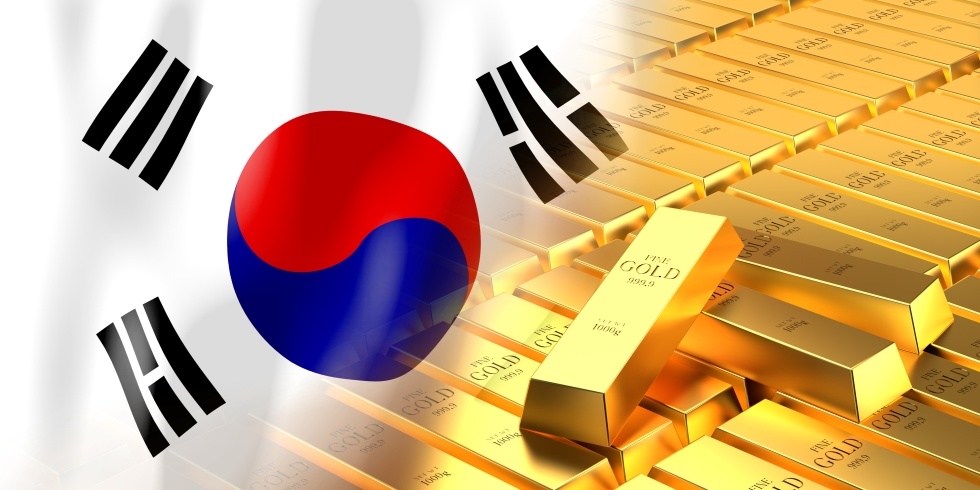Unveiling South Korea's Gold Market Dynamics
Explore the intricacies of South Korea's gold trade, from key players to government policies. Dive into the opportunities and challenges of this thriving market.

South Korea, a key player in the global economy, has strategically positioned itself in the international gold market. Understanding the nuances of South Korea's gold imports provides valuable insights for businesses interested in the import-export business. In December 2023, imports of gold - exports of use in South Korea decreased to $39 million, highlighting the dynamic nature of the market.
Historical Context of Gold Imports
South Korea's journey in gold imports has witnessed intriguing shifts over time. From historical patterns to contemporary trends, the evolution of gold imports in Korea reflects the nation's adaptability to changing economic climates. Factors such as global market dynamics and domestic economic priorities have played a pivotal role in shaping these trends.
In January 1998, authorities estimated that the Korean public held approximately 2,000 tonnes of gold. Fast forward to 2015, and industry estimates suggested that the South Korean public held 800 tonnes of gold. These figures demonstrate the enduring popularity of physical gold as an investment in South Korea.
Economic Drivers Behind Gold Imports
Gold plays a multifaceted role in South Korea's economic strategy, serving as a hedge against uncertainties and a symbol of stability. The economic drivers behind gold imports are influenced by global economic conditions, supply and demand dynamics, and macroeconomic factors.
As of December 2023, major contributors to South Korea's gold imports included China, the United States, the European Union, Japan, and Australia . Understanding these economic drivers is crucial for businesses seeking to navigate the intricate landscape of South Korea's gold import market.
Key Players in South Korea's Gold Trade
Identifying the major players in South Korea's gold import landscape is essential for businesses seeking to enter this vibrant market. South Korea's gold sector features widespread availability of physical investment gold through dealers and banks, spot and futures trading, and internationally known refineries producing refined investment gold.
LS Nikko Copper Inc
The only South Korean refinery on the LBMA Good Delivery List for gold, LS Nikko plays a crucial role in refining copper, gold, and silver. It produces various gold bar weights for both wholesale and retail markets.
Korea Gold Exchange 3M
A private precious metals wholesaler and distributor, Korea Gold Exchange 3M is South Korea's largest gold merchant. It supplies gold bars to major Korean banks and offers a range of weights, including unique sizes like 3.75 grams and 18.75 grams.
Samsung Precious Metals Trading Center
Established in 1945, Samsung Precious Metals Trading Center is based in Seoul. It produces its own brand of gold bars in weights ranging from 1kg down to 8.75 grams, contributing significantly to the domestic precious metals market.
Korea Minting, Security Printing, and ID Card Operating Corp (KOMSCO)
A state-owned company, KOMSCO produces Korea's national currency and various security products. It manufactures its own branded gold bars and certifies the quality standards of gold traded on the Korea Exchange.
Poongsan Hwadong
Part of the Poongsan industrial and metals conglomerate, Poongsan Hwadong specializes in manufacturing coin blanks, banknotes, and precious metal medals. It serves as an authorized distributor for international brands such as Perth Mint and Royal Canadian Mint.
Korea Gold Trading Center (KGTC)
Established in 2001, KGTC is a Seoul-based importer and distributor of physical gold. It also operates as a futures commission merchant (FCM) on Korea Exchange, brokering derivatives products.

Government Policies and Regulations
Navigating the intricacies of South Korea's gold import sector requires a comprehensive understanding of government policies and regulations. Policies governing gold imports are designed to ensure transparency and fair trade practices.
- Korea Exchange (KRX): Established in 2005, KRX oversees gold futures in South Korea. It provides a regulated platform for trading, ensuring transparency and fair practices in the gold market.
- Korea Securities Depository (KSD): Responsible for settlement, clearing, and securities services in the Korean financial markets, KSD manages the trade settlement and custody platform for the KRX gold exchange.
- Taxation Policies: Gold transactions on the KRX gold exchange are free of capital gains tax and value-added tax (VAT) as long as the gold is not physically withdrawn. However, gold withdrawn from the custody of the KSD is levied with a 10% VAT charge.
- Import Requirements: Gold bullion eligible for trading on the KRX gold market must meet specific criteria, including a fineness of at least 99.99%, a weight of 1kg or more, and certain dimensions and markings.
Trends and Statistics
Staying informed about current trends and statistics is crucial for businesses. As of December 2023, South Korea's gold imports were led by China, the United States, the European Union, Japan, and Australia. Monitoring these trends empowers businesses to make informed decisions in this dynamic sector.
Economic Implications
The economic implications of gold imports in South Korea extend beyond commodities trading. Gold imports significantly impact the nation's trade balance and contribute to its overall economic health. As of December 2023, South Korea's gold imports and exports of use totaled $39 million.
Challenges and Opportunities
Entering South Korea's gold import sector comes with challenges such as market volatility and regulatory complexities. Simultaneously, opportunities abound for businesses leveraging South Korea's robust economy and its position in the global gold market.
Challenges
- Market Volatility: The gold market, influenced by global economic conditions, can be volatile, posing challenges for businesses navigating price fluctuations.
- Regulatory Complexities: Adhering to government policies and regulations, especially regarding taxation and import requirements, can be complex and require a thorough understanding.
Opportunities
- Growing OTC Gold Market: South Korea's thriving over-the-counter (OTC) gold market presents opportunities for businesses to engage in decentralized transactions.
- Innovation in Gold Futures: Despite historical challenges, there are opportunities for innovation in gold futures contracts, potentially tapping into a new segment of the market.
- Strategic Partnerships: Collaborating with key players like LS Nikko Copper Inc and Korea Gold Exchange 3M can open doors to strategic partnerships and enhance market presence.
- Diversification of Gold Products: Introducing diverse gold products, such as unique bar sizes or innovative investment options, can cater to the preferences of South Korean investors.
Navigating Success in South Korea's Gold Import Market
Korea's gold import sector is a realm of opportunities for businesses with the vision to navigate its complexities. From historical context to future outlook, understanding the nuances of the gold market in Korea is key for those seeking success in international trade.
For businesses looking to import from Korea, the Export Portal serves as an invaluable platform. It provides a gateway to connect with potential partners, access real-time market data, and capitalize on the diverse opportunities that South Korea's gold import market has to offer.
As the global economy evolves, positioning your business strategically in South Korea's dynamic gold import sector can be a transformative step toward sustained growth and success. Explore the possibilities, make informed decisions, and unlock the potential of South Korea's gold import market through the Export Portal today.






Comments 0